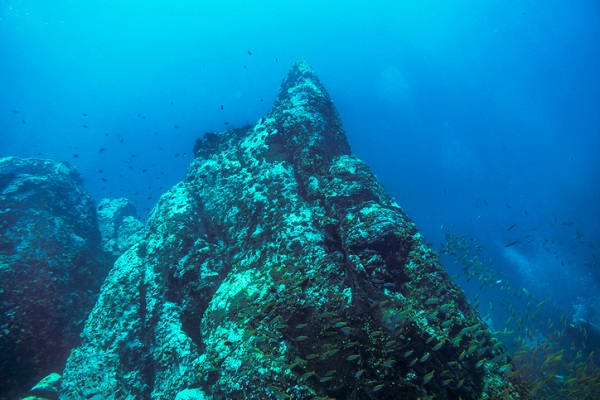EV batteries made from deep-sea rocks dramatically reduce carbon
Making EV batteries from deep-sea rocks can dramatically reduce the climate change impacts compared to land-based ones according to a study commissioned by DeepGreen and published in the Journal for Cleaner Production.
The study shows up to a 90% carbon footprint reduction for critical minerals when sourced from deep-sea polymetallic nodules compared to conventionally mined land ores. These nodules from the Clipperton Zone (CCZ) of the Pacific Ocean contain rich concentrations of four metals required for EVs in a single ore, including nickel, a crucial ingredient in EV batteries, which will increasingly be mined from beneath large forested carbon sinks in tropical areas like Indonesia and the Philippines.
ADVERTISEMENT
This discovery comes as the world EV market is looking for renewable sources of energy that can help power the growing industry.
The carbon intensity of producing metals like nickel has led to growing interest in low-carbon metal sources and a recent plea by Tesla’s Elon Musk promising “a giant contract” for nickel mined “efficiently and in an environmentally sensitive way”.
Dubbed Life Cycle Climate Change Impacts of Producing Battery Metals from Land Ores versus Deep-Sea Polymetallic Nodules, the paper starts with a demand scenario of producing four metals (nickel, cobalt, manganese, copper) to supply one billion 75KWh EV batteries with a cathode chemistry of NMC 811 (80% nickel, 10% manganese, 10% cobalt). It then compares the climate change impacts of supplying these four metals from two sources: conventional ores found on land and polymetallic rocks with high concentrations of four metals in a single ore, found unattached on the seafloor at 4-6km depth.
“We wanted to assess how metal production using either land ores or polymetallic nodules can contribute to climate change,” University of Delaware’s centre for minerals, materials and society lead author Daina Paulikas says.
“Looking from mining to processing and refining, we quantified three indicators for each ore type: direct and indirect carbon-dioxide-equivalent emissions, disturbance of existing sequestered-carbon stores, and disruption of future carbon-sequestration services. These three indicators directly impact the remaining global carbon budget to stay below 1.5C warming.”
The study can be found here, and goes deeper into the benefits of deep-sea rocks.
“This peer-reviewed study shows the intrinsic benefits of seafloor rocks when it comes to climate change impacts. The resource itself gives us a significant head start on land miners, but being low carbon is not enough. We are working on taking carbon out of the atmosphere, not adding it,” DeepGreen Metals chairman and chief executive Gerard Barron says.
“We’ll use hydropower onshore; we are exploring electrofuels to power offshore operations and using electric equipment and carbon-negative reductants in metallurgical processing. Put it all together, and we have a shot at bringing carbon-negative metals to the market.”
-
ADVERTISEMENT
-
ADVERTISEMENT


